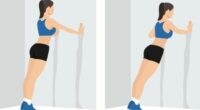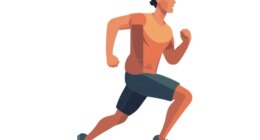Two and a half years ago, I had a serious accident on my bike. I shattered some bones (the surgeon gave me 10 out of 10 for how badly I’d broken them) and I had a procedure to put the bones back in place and had plates put in.
The A&E visit was horrific with me overdosing on the gas, and a nasty trip on the ketamine. I had a cast on longer than usual because of how bad it was, then I spent several months doing regular physio to get movement back.
Now though I simply cannot get back on my bike. I would love to be able to ride again, particularly as I want to reduce my emissions, given I live in a town with little public transport. However, I simply cannot get near my bike without my heart racing.
I am able to do other activities, particularly running and hiking. But the bike just brings horror with it. I have managed two short trips with my children, but they were very tough and I almost broke down afterwards. It is fairly obvious that I have some psychological scars alongside the physical ones. What can I do to get back on my bike?
I’m so sorry to hear this. I’m not surprised you feel as you do.
I went to clinical psychologist Dr Justine Bush, who works in a traumatic stress clinic, North London Mental Health Partnership. She deals with situations like yours regularly and although she stresses that she cannot diagnose you via letter, you might benefit from an assessment to see if you have PTSD.
I wondered what the context of your accident was. It sounded very serious, given the breaks and the drugs used. Were you hit by a lorry or a car? Was it a “near-miss” experience? This is important as it may explain some of the layers of your fear. Did the feeling remind you of anything else? This may be a trauma that has triggered a deeper, earlier one.
I’d also like you to think about what you are afraid of happening again. The obvious answer to this may be “hurting myself” and of course that will be part of it, but I’d like you to also think beyond that. Is it being out of action? Feeling trapped? Were you worried about being able to earn money while injured? If you can unpack the stuff around the obvious this will be a way to start to process what happened.
Sometimes the “what ifs” and near misses in an accident can be almost as terrifying as what actually happened. With PTSD, our memory of a traumatic incident isn’t laid down in the same way that a conventional memory is. So when we revisit a traumatic memory we relive all the original horrors and fears of it – the sweating, panic, fear, heart racing. This sounds like what is happening to you.
“The fact is you did keep yourself safe and you did survive this accident so there’s evidence you are really resilient,” said Bush. “You may benefit from some psychological therapy to help you with the PTSD.”
You could try local services such as talking therapy, CBT or EMDR. Your GP can refer you, or you can self-refer via IAPT (simply Google IAPT services).
after newsletter promotion
“One of the key features of PTSD [if it is that],” said Bush “is avoidance: avoidance of thinking about what happened, talking about it and anything to do with what happened.”
You could also try graded exposure on your own in the meantime, if it’s not too upsetting. Take it very slowly and do something small every day: you can start by looking at your bike, taking it out of the garage, but not riding it. Then getting on and off it but not riding it, then riding it in a very safe place for a very short amount of time.
Build on that, but don’t be tempted to overdo it. We get confidence by doing the same thing over and over again. However, when that confidence has gone we need to go right back to the beginning.
-
Every week, Annalisa Barbieri addresses a personal problem sent in by a reader. If you would like advice from Annalisa, please send your problem to [email protected]. Annalisa regrets she cannot enter into personal correspondence. Submissions are subject to our terms and conditions.
-
Comments on this piece are premoderated to ensure the discussion remains on the topics raised by the article. Please be aware that there may be a short delay in comments appearing on the site.
-
The latest series of Annalisa’s podcast is available here.




